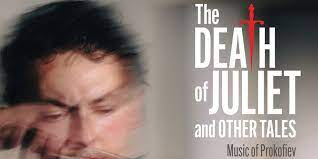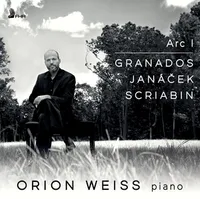There is something new under the sun with Marti Epstein and her
Nebraska Impromptu (New Focus Recordings FCR 324). It is an album of music for clarinet and various chamber configurations, handled gracefully and winningly by clarinetist Rane Moore and the Winsor Music players. There are five works in all, written between 2001 and 2018.
The music apparently spawned an interaction between a student and the composer, which I stumbled upon on FB but I lost track of when I went back to the newsfeed. It got my attention because it addressed what today's Modern music scene is all about, essentially in the composer's view (rightly) it is less and less about some kind of 12-tone Serialist High Modernism, but then in fact is in a wildly open post-one-thing world. Now any regular reader of this Blog knows I champion that very notion, that what one might hear today exists within a wide expanse of possibilities, and that nothing automatically can be assigned a status above another in terms of "currency." The discussion made me want to hear the album and I realized it was on my stack ready to be heard.
And as it seems plain to me and happily so, this collection of Marti Epstein chamber gems finds its own turf in an ever unfolding, lyrically yet fully tonal palette of brilliant sound color and rhythmically, gradually blooming contrapuntal open form. And the music is in line with the wide-open set of expectations of what one might find in any given collection of New Music these days. So three cheers for that.
So to my mind the five compositions presented here are as interesting and as introspectively encompassing as anything new out there today. Epstein responds to the many things now "in the air" in New Music without joining any particular school in some slavish way. We get processual and repetitive elements but not as a paradigmatic constant, no more than, say, a Modern poet might add reiteration to the substructure of unfolding without, say, committing to the absolute, almost ritual systematicity of a Gertrude Stein. The world has turned and we individually and collectively can take what insights we have gotten from the Modernist generations and move it further along expressively.
Perhaps we are in an age where the program notes are not an essential part of hearing what is going on. We can trust our now fully Modern-and-beyond musical senses to understand and appreciate what is being expressed. The press sheet mentions the influences of Webern, Feldman and Takemitsu as well as the American plains and Nebraskan vistas. I understand and concur--and if I might be so bold to suggest, there is a fragile, terse yet overarching beauty in classic Webern that of course never depended completely on 12-tone procedures, there was more there and Ms. Epstein has taken it to heart!
Each of the five works stands on its own in terms of structure, in terms of syntax and spacing. So we listen with gradually more enthusiastic responses to "Oil & Sugar" (2016), "Liquid, Fragile" (2010), the title work "Nebraska Impromptu" (2013), "Komorebi" (2018) and "See Even Night" (2001).
Rane Moore's clarinet work here is nothing less than magical. The spellbinding, ever renewing presence of clarinet and differing chamber combinations underscores Ms. Epstein's poetic luminosity, be it clarinet and piano, same with additional flute and violin, or with viola, and then clarinet, violin, viola and cello, or oboe and violin in tandem with clarinet.
Every piece has its place in the contemplative matrix, each revealing a slightly different musico-inventive acumen.
After a good number of hearings I am sold on all of it. Someone of the caliber and originality of Marti Epstein does not come along every day, of course. But we are lucky for such a revealing newness that emphasizes a togetherness more so than an "advancement" per se. It advances into itself. We are all the better for it. Bravo! Strongly recommended. Music for the present day and ages to come!








